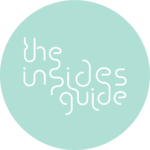Coeliac disease affects more than one in 70 New Zealanders.
Increased awareness is what’s needed to help the estimated 57,000 New Zealanders who have coeliac disease but don’t know it. An autoimmune condition with symptoms triggered by the ingestion of gluten (a protein found in wheat, rye and barley), coeliac disease is thought to affect more than one in 70 of us, making it among the most common autoimmune diseases – but also one of the most under-recognised, with only about 14,000 New Zealanders diagnosed.
Early diagnosis is crucial.
“Early diagnosis and treatment – a strict, life-long gluten-free diet – is hugely important,” says Elly McKenzie, nutritionist at Mt Maunganui-based The Insides Guide, who was diagnosed with the disease 20+ years ago. “Untreated coeliac disease can lead to a range of whole-body symptoms and also sees you more likely to develop other health problems, such as osteoporosis, infertility, cancer and other autoimmune diseases.”
Coeliac disease can develop at any age.
It affects men, women and children, and has a hereditary component. The wide range of symptoms associated with the condition (see below) are thought to play a part in its under-diagnosis, because “you don’t need to be in pain or have vomiting and diarrhoea to have it,” says Elly. “It’s even possible not have any noticeable symptoms at all; however, a person with untreated coeliac disease with no or mild symptoms is at equal risk of serious long-term health complications as someone with severe symptoms. It’s a bit like being pregnant – some mums are crippled by morning sickness, whereas some feel fine. The symptoms are different, but what’s happening on the inside is the same.”
Blood tests help diagnose coeliac disease.
Proper identification of coeliac disease starts with a simple blood test ordered by your GP. But, says Elly, for the test to ‘work’, you must be eating a gluten-containing diet, so don’t remove gluten from your diet before coeliac disease has been ruled out. A positive blood test would be followed by an appointment with a gastroenterologist and a small bowel biopsy to confirm the diagnosis.
A crumb of bread can trigger a coeliac reaction.
It only takes a speck of ingested gluten to trigger the immune response that damages the small intestine in people with coeliac disease – as little as a crumb of bread. This means that as well as the vast array of foods that contain gluten, cross-contamination in cafés, restaurants and at home can be a problem for sufferers. The slice of gluten-free cake picked up with tongs that were used to touch gluten-containing treats; the breadcrumbs left in your butter; the wheat-based playdough under your child’s fingernails that ends up in their mouth…
Following a gluten-free diet can be challenging.
“Just how challenging it can be to live truly gluten-free is something most people don’t understand,” says Elly. “It’s a key reason why I started The Insides Guide. I wanted there to be a place where people with coeliac disease can come to learn about the practical aspects of their condition and be supported to stay well. Too few are being taught how to identify gluten on food labels, for example, and that’s absolutely critical to the management and long-term outcomes of the disease, so I’m also in the process of launching an online training module to address that.”
The Insides Guide can help.
As a nutritionist, food scientist, coeliac of 20+ years and mum to children with food intolerances (including non-coeliac gluten sensitivity, which affects one in 10 New Zealanders), Elly has true insider knowledge that she believes compliments the critical service doctors and dieticians provide. “Not only do I have a comprehensive understanding of the condition, the food industry and its regulations, I also know things only a coeliac and mum to gluten-free children could — like what brand of gluten-free bread has the best chance of wrapping around a sausage without breaking! Coeliac or not, if you have any questions about gluten, I’m here to help.”
Could you have coeliac disease?
If you or your child has been experiencing any of these symptoms, please speak to your GP about getting tested:
- Nausea, bloating, gas, stomach pain, vomiting, diarrhoea, constipation
- Lactose intolerance
- Weight loss, weight gain
- Poor growth in children
- Nutrient deficiencies e.g. iron, B12, folate, calcium
- Headaches, migraine
- Extreme tiredness and lethargy
- Neurological disturbances e.g. brain fog; depression; anxiety; disturbed muscle coordination; tingling, numbness, burning and pain in your extremities
- Mouth ulcers, poor tooth enamel
- Skin rashes, including psoriasis, and dermatitis herpetiformis (characterised by small itchy blisters)
- Joint pain
- Muscle pain, cramps and weakness
- Loss of bone density, fractures
- Clotting disorders, easy bruising
- Abnormal liver function
- Infertility issues, recurrent miscarriage.
My message is clear: know the symptoms of coeliac disease and don’t hesitate to get tested. “Fifty-seven thousand undiagnosed coeliacs in a little country like New Zealand? We can do better.”
Need personalised nutrition advice?
Elly McKenzie is a New Zealand-based nutritionist specialising in practical, evidence-based support for gut health, coeliac disease, irritable bowel syndrome, food allergies/intolerances, and general nutrition (including healthy eating, high cholesterol/blood pressure and pre-diabetes).
Consultations are available in person at her Mount Maunganui clinic (Tauranga) or across Aotearoa via secure Telehealth. Book a consultation or get in touch to learn more.

